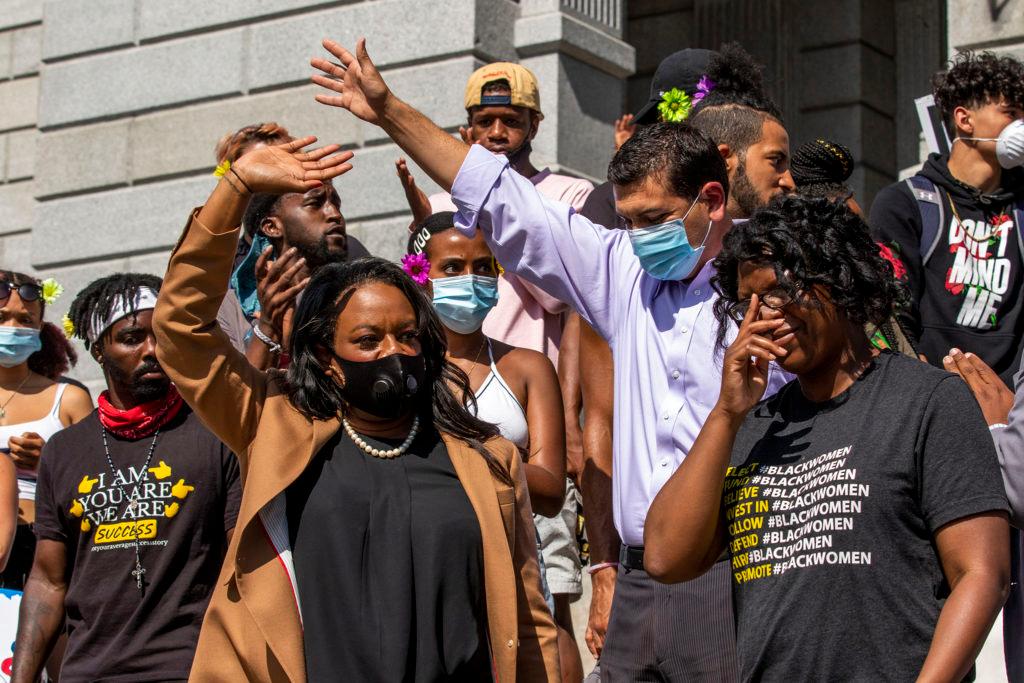
A sweeping police reform bill introduced Wednesday will require all police officers to wear body cameras and create an intensive reporting system to follow when officers use force that will be tracked by state officials and reported to the public.
The bill’s introduction comes on the seventh day of marches across the state protesting police brutality in wake of the death of George Floyd, a Minneapolis black man who died in police custody.
The proposed legislation makes it easier for civilians to sue individual police officers and gets rid of the state’s “fleeing felon” statute, which allows officers to legally shoot someone running away if they are suspected of committing a felony and are armed.
“This bill directly responds to incidences we’ve seen in Colorado in the last couple of years,” said state Rep. Leslie Herod, of Denver, who is leading the bill in the state House of Representatives. “It’s a really important bill that tackles accountability and transparency in law enforcement. It’s not everything, but it’s a step in the right direction.”
The bill also bans chokeholds and requires state officials to review officer-involved incidents and make adjustments to police training through the Police Officer Standards and Training office under the attorney general. The bill requires officers to intervene in situations when one of their colleagues is acting inappropriately.
On body cams, police departments would be required to release footage within 14 days of incidents to the public — or say why they can’t.
The bill has support from every Democrat in both chambers.
CPR News found earlier this year that Colorado has the fifth-highest rate of officer-involved shootings in the nation, and that much of the investigations into officer-shootings by other law enforcement agencies or prosecutors is cloaked in secrecy. State officials keep track of officer-involved deaths, but no one tracks individual departments and rates. Cities and counties often settle lawsuits with grieving families quietly and officers go back out to the streets.
On Wednesday, state Senate Republicans signaled support for reform legislation for police officers. But that, “unfortunately, it doesn’t seem like either law enforcement or our caucus was really welcome to be part of this conversation,” said Sage Naumann, a Republican spokesman.
Naumann said police officers supported universal body cams and the ban on chokeholds, and they like transparency because “it keeps everyone honest.”
Three Colorado law enforcement advocacy groups called Floyd’s death “indefensible” and said they were “appalled” at how little officers standing by did for him. They said they would support legislation that requires officers to intervene when another officer is breaking the law or acting in bad faith.
“We will not sit idly by,” said Broomfield Police Chief Gary Creager, chair of the Colorado Association of Chiefs of Police. “Inaction should be condemned as harshly as unjust force.”
The bill should get its first airing this week.









